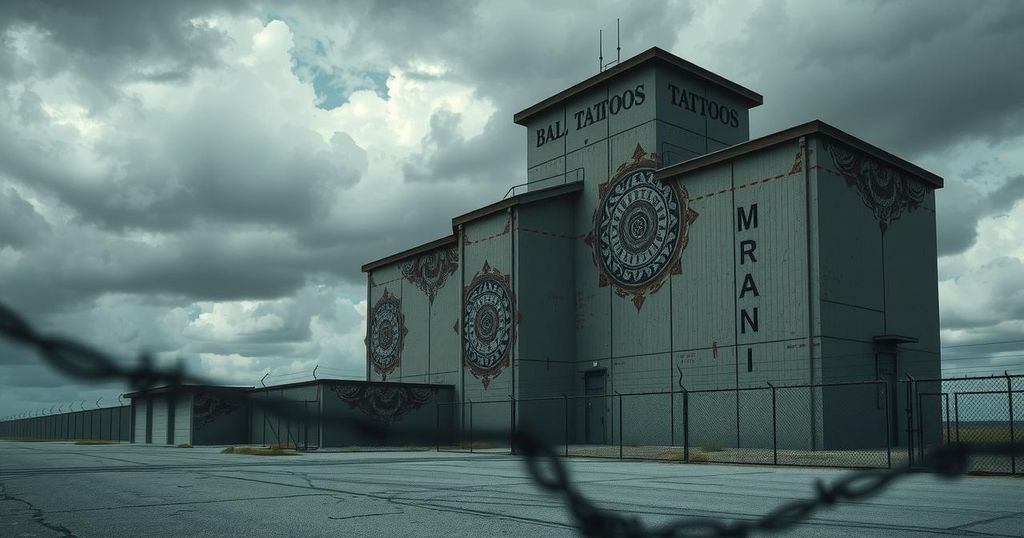Crime
AFP, ASIA, BRAZIL, CHACIN, CRIME, CUBA, DARIEN GAP, DEPARTMENT OF HOMELAND SECURITY, EDWARD, EL SALVADOR, HERITAGE PRESERVATION, ICE, JHON CHACIN, JUSTICE, MARACAIBO, MISSING PERSONS, NORTH AMERICA, ORGANIZED CRIME, PHILIPPINES, RINGO RINCON, SALVADOR, SOUTH AMERICA, TEXAS, TREN DE ARAGUA, UNITED STATES, US, US DETENTION CENTER, VENEZUELA, YULIANA
Oliver Grayson
0 Comments
Mislabeling of Venezuelan Migrants: The Tattoo Controversy in El Salvador
Many Venezuelan migrants deported to a notorious jail in El Salvador claim they were wrongly labeled gang members due to their tattoos. Family members assert that tattoos do not signify criminal behavior, and evidence supporting the gang affiliations is scarce. The deported individuals lack criminal records, raising concerns about due process and wrongful identification by US authorities.
Lawyers and family members of Venezuelan migrants assert that their loved ones have been unfairly labeled as gang members and terrorists due to their tattoos. Notably, Jhon Chacin, a tattoo artist, has various tattoos but was arrested for unlawfully entering the United States. Following his deportation to a notorious prison in El Salvador, his family was shocked to see him in a video of chained prisoners, categorized as members of the Tren de Aragua gang. Chacin’s sister, Yuliana, emphasized that he has never had a criminal record and believes the tattoo allegations led to his misidentification.
Edwuar Hernandez Herrera, a 23-year-old deportee with four tattoos commemorating family, is another victim of this labeling. His mother insists that tattoos do not imply criminality. Similarly, Ringo Rincon, with notable tattoos symbolizing family milestones, is also facing wrongful assumptions about gang ties. US authorities have not provided substantial evidence linking the deportees to the Tren de Aragua organization, prompting concerns over due process.
An ICE official acknowledged that many deported men lack criminal records. Tricia McLaughlin from the Department of Homeland Security cited tattoos as indicative of gang affiliation, specifically naming Jerce Reyes Barrios. His lawyer contended that he was accused based on innocuous body art related to soccer, not gang affiliations.
Despite assertions from Texas authorities about tattoos affiliated with Tren de Aragua, experts like Ronna Risquez argue that tattoos are not a definitive marker of gang membership in Venezuela. Former President Trump reiterated support for the deportations, linking tattoos to gang violence, while also expressing concern over potential misidentifications. The Venezuelan government has since sought legal assistance to help their deported citizens, amid a backdrop of substantial migration driven by economic and political crises in Venezuela.
In conclusion, the situation surrounding the deportation of Venezuelan migrants to El Salvador underscores serious issues of wrongful labeling based on tattoos. Family members and legal representatives contend that these individuals are unjustly categorized as gang members. The lack of credible evidence supporting such claims raises significant concerns about due process and the reliance on tattoos as indicators of criminality. The pressing need for legal recourse to address these injustices remains crucial.
Original Source: www.kten.com




Post Comment